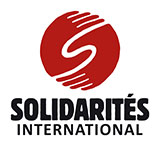
PREAMBLE
The climate and environmental emergency is a global emergency. It already affects all the world’s people and ecosystems, but the most vulnerable people, who have contributed the least to these disruptions, are the hardest hit.
Without a drastic reduction in greenhouse gas emissions and without ambitious measures to preserve and restore biodiversity, these crises will continue to have a major impact on humanitarian needs and the chances of vulnerable populations to sustainably improve their living conditions.
Solidarity organizations must therefore adapt their mode of action in order to respond to these crises and support populations to be more resilient, prepare for and adapt to this new reality as well as preserve and conserve their environment.
The actions of solidarity organizations, crucial as they may be, can nevertheless generate environmental and climate impacts. Therefore, for the humanitarian sector, taking these issues into account is a question of overall coherence of action, exemplarity and respect for the principle of “do no harm”.
In order to be in line with the commitments made by States at COP 21 to limit the increase in temperature well below 2°C and if possible 1.5°C compared to the pre-industrial era, in order to anticipate the commitments of COP 15 on biological diversity which will take place in 2021, and conscious of our responsibilities, we, organizations of international solidarity, commit* to:
1. MEASURING OUR IMPACTS
- Measure the environmental and carbon impacts of our actions on a regular basis.
2. REDUCE OUR CARBON FOOTPRINT
- Set a reduction target in line with IPCC’S recommendations to halve** emissions*** by 2030 and at least 30% by 2025.
3. ADAPTING OUR HUMANITARIAN ACTION TO MEET THESE NEW CHALLENGES
- Integrate analysis of climatic and environmental risks into all our actions and promote the implementation of prevention, mitigation and adaptation actions where relevant.
- Reduce negative impacts and promote humanitarian and development actions that have a positive impact on the environment and climate.
- Develop and call upon local expertise in connection with Grand Bargain’s commitments on localization.
4. COMMUNICATE
- Make this information public as soon as available and on an annual basis.
5. ENCOURAGING OTHERS TO RAISE THE AMBITION
- Raising the awareness of as many of our collaborators as possible, within everyone’s means, of the major impacts of the climate and environmental crises on the most vulnerable.
- Contribute to the project to develop an environmental and climate charter for the entire sector (currently being launched by the ICRC and the Red Cross).
CONTACTS
Samantha BRANGEON : Environmental reference, Groupe URD : sbrangeon@urd.org
Fanny PETITBON : Advocacy Manager, CARE France : petitbon@carefrance.org
LIST OF SIGNATORIES
Action Contre la Faim
ACTED
ALIMA (The Alliance for International Medical Action)
CARE France
Électriciens Sans Frontières
Groupe URD
Médecins du Monde
Première Urgence Internationale
Secours Islamique France
Solidarités International

*The success of such a commitment requires the involvement of donors and governments in order to foster transformations to reduce certain emissions and to support necessary technical and financial adjustments. We will be vigilant to the involvement of our partners and to the co-construction of the strategies and actions to be implemented.
**Objective in line with the IPCC report Global warming of 1.5°C which estimates that ‘In model pathways with no or limited overshoot of 1.5°C, global net anthropogenic CO2 emissions decline by about 45% from 2010 levels by 2030, reaching net zero around 2050’. NGOs with no 2010 baseline data are committed to adjusting this commitment in relation to their baseline year while at the same time remaining just as ambitious. This reduction does not take into account carbon offsetting.
***The scope will be defined by each organization and will be shared publicly. The organizations commit themselves to cover at least scopes 1 and 2 and progressively scope 3. (https://www.bilans-ges.ademe.fr/fr/accueil/contenu/index/page/categorie/siGras/0)
